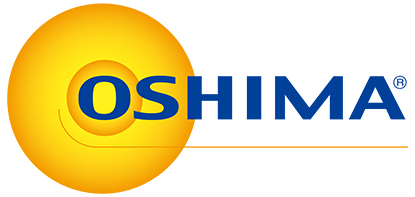As quality control processes in the textile and garment industries evolve, traditional manual inspection methods increasingly show limitations. In response, many machinery manufacturers are turning to the development of AI-driven fabric inspection machines. However, these AI-powered solutions' practical application and efficacy often need to be clearer. Today, we wnat to demystify these common misconceptions, and provide accurate information so that you can better understand AI fabric inspection machines.
Can AI Do It All? Debunking Common Misconceptions About AI Inspection Machines
When considering fabric inspection, we must first define a fabric flaw. Why is fabric defect inspection necessary? What are the mainstream inspection technologies currently available on the market? While many view AI tools as the future saviours of quality control, recognizing their underlying realities and limitations is essential before purchasing one. Below, we address some common misconceptions surrounding AI-powered fabric inspection machines.
-
Myth 1: AI Inspection Machines are Ready to Use Right Off the Bat
Reality: AI inspection machines are not a simple plug-and-play solution; they require user training and acclimatization time. In practice, users and suppliers must engage in detailed discussions to clearly understand defects' definitions and standards, enabling practical AI training. Clear, thorugh talks between users and suppliers from the start are necessary to establish precise defect standards and rules—the more transparent these discussions, the more efficient the implementation.
-
Myth 2: More Data is Always Better
Reality: AI cannot exist without data, but having data does not ensure successful AI. Building AI models requires a substantial amount of high-quality data, which can have a significant impact on the models' effectiveness. However, more data isn't always better—especially if poorly categorized. A well-organized, high-quality dataset is essential for efficiently training AI.
-
Myth 3: Wait for Other Manufacturers to Perfect AI Models Before Implementing
Reality: Waiting for others to improve AI models can indeed save costs. However, as each company's fabrics and defect data vary, even a pre-trained model may perform poorly if introduced into a different production environment or data execution context without further adaptation. Artificial intelligence is not omnipotent. Even if a trained model is imported directly, if the user stops the training and continually corrects the model, it will remain worthless.
-
Myth 4: AI Inspection Machines Can Replace Human Labor
Reality:Although AI inspection machines significantly reduce the need for manual labour, the learning and optimization of AI models still require the guidance and support of experienced fabric inspectors. Furthermore, manual intervention is still required for maintenance and modifications when equipment malfunction.
What Six Things AI Inspection Machine Supplier Won't Tell You:
-
More Camera Stations Are Always Better
More camera stations are necessary depending on the specific defect types and the factory's needs. If a vendor insists on more cameras without understanding your requirements, they may not truly understand your needs.
-
Specific Camera Stations for Specific Fabric Defects
Effective AI defect detection relies on clearly labelled and categorized initial data. Before purchasing an AI inspection machine, ensure the vendor understands your factory's specific defect types instead of merely recommending camera stations for certain defects. Always shop around and compare offers from multiple vendors.
-
High-Resolution Cameras Provide Clearer Images
While high resolution can produce more precise images of defects, ultra-clear images also increase the likelihood of false positives. For example, the appearance of a stain might be misinterpreted as dirt without clear definitions and categorization. Additionally, the actual accuracy of detection depends not only on the camera's resolution but also on factors like software processing speed and computer specifications. High-resolution cameras are also more expensive, so consider whether the additional cost suits your needs.
-
AI Operation Requires Significant Computing Resources
AI training and operation demand substantial computing resources, including powerful processors and extensive memory, which can strain a company's IT infrastructure and budget.
-
AI Accuracy Is Not 100%
AI model predictions and judgments are not always accurate; they are influenced by the quality of training data, model complexity, and other variables. Human involvement may sometimes be necessary to correct AI decisions.
-
AI Requires Ongoing Maintenance and Optimization
AI training and usage are ongoing processes requiring continuous maintenance and optimization. This may involve regular model updates, integration of new data, and system adjustments.
Conclusion
As the textile and garment manufacturing industries change, the growing demand for product quality highlights the limitations of existing inspection methods. The OSHIMA EagleAi fabric inspection machine is making a significant leap in managing knit fabric tension. This guarantees that materials are not stretched during testing, which improves detection accuracy.
Additionally, our AI system covers many common fabric defects, such as spots caused by additives, dye stains, and oil stains. It can adapt to new materials within four hours, achieving detection rates of over 70%. This increases manufacturing efficiency and greatly lowers production costs, giving the company a competitive advantage in the market. If you would like to receive a free AI fabric flaw report, please contact us.




